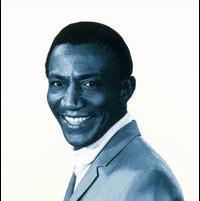
Lee Dorsey
by Steve HueyLee Dorsey epitomized the loose, easygoing charm of New Orleans R&B perhaps more than any other artist of the 60s. Working with legendary Crescent City producer/writer Allen Toussaint, Dorsey typically offered good-time party tunes with a playful sense of humor and a loping, funky backbeat. Even if hes remembered chiefly for the signature hit Working in a Coalmine, it was a remarkably consistent and winning combination for the vast majority of his recording career.Dorsey was born in New Orleans on December 24, 1924 (although some sources list 1926), and moved to Portland, OR, at age ten. After serving in the Navy during WWII, Dorsey returned to Portland and became a successful light heavyweight boxer, fighting under the name Kid Chocolate. He retired from boxing in 1955 and returned to his birthplace, where he eventually opened a successful auto-body shop. He pursued a singing career by night, and wound up recording singles for several different labels, most of which made little noise (although Lottie Mo sold respectably). In 1961, he signed with Bobby Robinsons Fury label, where he entered the studio with producer Allen Toussaint for the first time. Dorseys nonsense ditty Ya Ya — reportedly inspired by a childrens rhyme — became his first national hit that year, reaching the pop Top Ten and hitting number one on the R&B charts. Despite its popularity, following it up turned out to be difficult, and with a large family to support, Dorsey returned to his auto repair business after a few more singles flopped.Still, Allen Toussaint loved Dorseys voice, and kept him in mind for future sessions. Toussaints hunch paid off in 1965 when, signed to the Amy label, Dorsey turned Ride Your Pony into a Top Ten R&B hit. The accompanying album of the same name sold respectably as well, and Dorsey began cutting a multitude of Toussaint compositions, often with the legendary New Orleans funk ensemble the Meters as his studio backing band. The New Lee Dorsey was released later in 1966, and supplied Dorseys best-known song, the irresistible Working in a Coalmine (which he co-wrote with Toussaint). With its clanking sound effects and Dorseys comic exclamations, Working in a Coalmine became his second Top Ten pop hit and signature song, and Dorsey toured internationally with the Meters backing him up. A few follow-ups, particularly Holy Cow and Everything I Do Gonh Be Funky (From Now On), met with some success, but Dorsey was once again hard pressed to duplicate his big hit, and once again left music for the practical concern of running his business. 1970s Yes We Can (on Polydor) was his last album for some time, with the title track becoming his last chart single.After guesting on the Southside Johnny & the Asbury Jukes cut How Come You Treat Me So Bad?, Dorsey attempted a comeback in 1977 with the ABC album Night People, which wasnt a commercial success despite mostly positive reviews. Still, it was enough to land him supporting slots on tours by the likes of James Brown, Jerry Lee Lewis, and even the Clash, whose 1980 tour was his last major concert jaunt. In the meantime, other artists mined his back catalog for covers: Working in a Coalmine was redone by robotic new wavers Devo and country duo the Judds; Ya Ya by Ike & Tina Turner, John Lennon, and Buckwheat Zydeco; Everything I Do Gonh Be Funky (From Now On) by jazzman Lou Donaldson; and Yes We Can by the Pointer Sisters (under the new title Yes We Can Can). Dorsey continued to perform sporadically, as opportunities presented themselves, until he contracted emphysema; he died in New Orleans on December 1, 1986.
